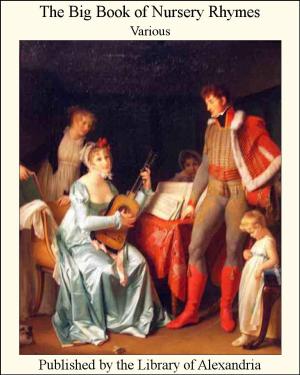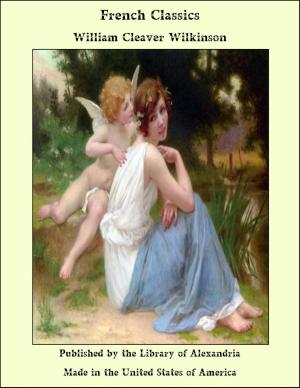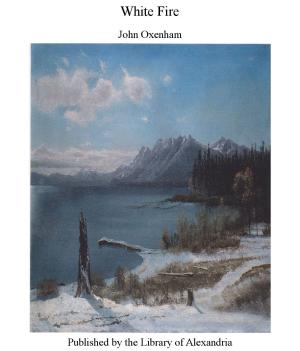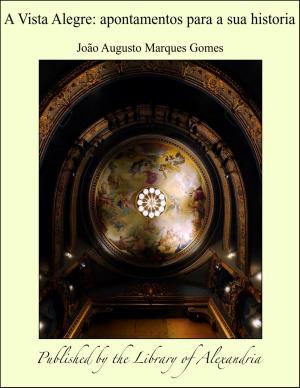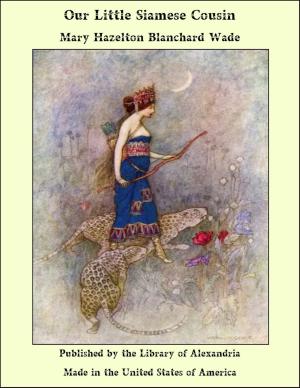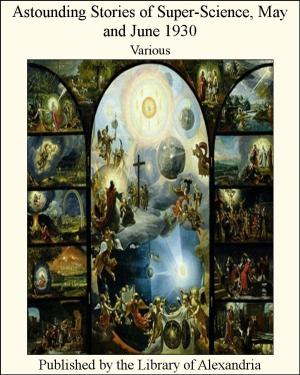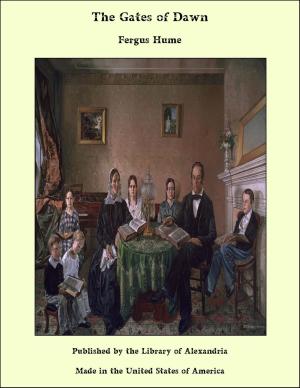The Complete Works of Josh Billings
Nonfiction, Religion & Spirituality, New Age, History, Fiction & Literature| Author: | Henry W. Shaw | ISBN: | 9781465558374 |
| Publisher: | Library of Alexandria | Publication: | July 29, 2009 |
| Imprint: | Library of Alexandria | Language: | English |
| Author: | Henry W. Shaw |
| ISBN: | 9781465558374 |
| Publisher: | Library of Alexandria |
| Publication: | July 29, 2009 |
| Imprint: | Library of Alexandria |
| Language: | English |
In the United States of America a “show” is the generic name comprising every description of entertainment, being equally applied to an equestrian performance, a dramatic company, an operatic concert, a political oration, or a lecture on the geology of the oil district of Pennsylvania. A few years ago, when I did not know America quite so well as I do now, I was asked by Mr. Barnum to meet him on a matter of business at his celebrated Museum on Broadway. Every one who has visited New York and called in at that strangely-jumbled exhibition, will remember a small room on the first landing, with “Mr. Barnum—Private” painted on the door. I don’t know whether any show-case in the Museum was as attractive to the crowds of country visitors as that little room proved to be. Though privacy was written on the post, publicity was ever peeping in at the door. Shrewd, astute, and rusé as Barnum is, none knew better than he that the greatest object of interest in the Museum was himself. Hence he arranged to have his private room immediately in front of the public xiv staircase, with the door always a little open, to pique curiosity, unless really important business required absolute seclusion. In this room, or rather in this glass-case, for its three sides were of glass, like the cases containing the wax-figures and the stuffed animals, Barnum and I met. He conversed about different speculations he had on hand, and various ideas which he wished to carry out. Some of them were very characteristic of the man and his spirit of enterprise. One, was to organize an expedition to the mouth of Davis’s Straits at the proper season, select a very large iceberg, bring it down in the tow of two or three steamers to New York Bay, put a floating fence around it, exhibit the iceberg at twenty-five cents admission, and realize a large profit by making and vending sherry cobblers with ice from the real iceberg! Another idea suggested by the man of many shows was to get the American Minister at the Court of Constantinople to apply to the Sultan for a firman to permit Barnum or his agent to visit the mosque at Hebron, traditionally asserted to be built over the Cave of Machpelah, in which the remains of the patriarchs were buried. “If we could only get the remains of Abraham and bring them to New York!” exclaimed the deus ex machinâ of the Museum, rubbing his hands with delight at the ingenuity of the thought. Then, after a moment’s reflection, and knowing me to be well acquainted with England, he remarked, inquiringly, “What do you think of Spurgeon for a show? Could he be got over here?” To me unused as I then was to American xv can manners, the association of a clergyman with Bartlemy Fair and Barnum’s Museum seemed ludicrously incongruous. Subsequently my experience taught me to believe that some of the preachers of the United States look at their position from the same point of view as did Mr. Barnum in wishing to speculate in Spurgeon. A “showman,” as well as an author, Josh Billings is now regarded in the cities of the Union. In England we would style him a facetious lecturer, but the lecturing business in America is carried out with all the arts, formulæ and appurtenances of showmanship. There are the large posters, the puff advertisements, the agent in advance, and the lithographs plain or colored, all brought into requisition. It is quite true that if Charles Dickens visited Manchester or Birmingham to read “Doctor Marigold” or “The Christmas Carol,” he also had his agent and his yellow window-bills with the black and red printing; but the window-bill is limited to a size and is printed in a style fitting to the superior class of entertainment; while, in America, the posters of the popular lecturer are as showy and as exciting as those of Van Amburgh with his wild beasts, or the Hanlon Brothers with their feats on the trapeze. Quaintness, however, is an essential requisite in the placard of the facetious lecturer. Artemus Ward used to announce in large letters on the walls that he would “Speak a Piece” at a certain place and on a certain date. Josh Billings announces in a still more mystic manner, strongly reminding the observer xvi of Ruskin’s bizarre, grotesque, enigmatical titles. I have before me, as I write, a printed notice which reads thus:— “ALLYN HALL, HARTFORD. JOSH BILLINGS, On the 7th, With his HOBBY HORSE.” The reader who is anxious to know what Josh Billings means by an advertisement so eccentric in its character can have his curiosity satisfied by turning to page 404 of this work. The chapter is headed “How to pick out a good Horse,” and the caption is assuredly none the more inappropriate or infelicitous than are the titular conundrums of the “Seven Lamps of Architecture,” “Unto this Last,” or “A Crown of Wild Olives.” John Ruskin and Josh Billings understand with equal clearness the value of a title which shall arrest attention by not being too easy of comprehension
In the United States of America a “show” is the generic name comprising every description of entertainment, being equally applied to an equestrian performance, a dramatic company, an operatic concert, a political oration, or a lecture on the geology of the oil district of Pennsylvania. A few years ago, when I did not know America quite so well as I do now, I was asked by Mr. Barnum to meet him on a matter of business at his celebrated Museum on Broadway. Every one who has visited New York and called in at that strangely-jumbled exhibition, will remember a small room on the first landing, with “Mr. Barnum—Private” painted on the door. I don’t know whether any show-case in the Museum was as attractive to the crowds of country visitors as that little room proved to be. Though privacy was written on the post, publicity was ever peeping in at the door. Shrewd, astute, and rusé as Barnum is, none knew better than he that the greatest object of interest in the Museum was himself. Hence he arranged to have his private room immediately in front of the public xiv staircase, with the door always a little open, to pique curiosity, unless really important business required absolute seclusion. In this room, or rather in this glass-case, for its three sides were of glass, like the cases containing the wax-figures and the stuffed animals, Barnum and I met. He conversed about different speculations he had on hand, and various ideas which he wished to carry out. Some of them were very characteristic of the man and his spirit of enterprise. One, was to organize an expedition to the mouth of Davis’s Straits at the proper season, select a very large iceberg, bring it down in the tow of two or three steamers to New York Bay, put a floating fence around it, exhibit the iceberg at twenty-five cents admission, and realize a large profit by making and vending sherry cobblers with ice from the real iceberg! Another idea suggested by the man of many shows was to get the American Minister at the Court of Constantinople to apply to the Sultan for a firman to permit Barnum or his agent to visit the mosque at Hebron, traditionally asserted to be built over the Cave of Machpelah, in which the remains of the patriarchs were buried. “If we could only get the remains of Abraham and bring them to New York!” exclaimed the deus ex machinâ of the Museum, rubbing his hands with delight at the ingenuity of the thought. Then, after a moment’s reflection, and knowing me to be well acquainted with England, he remarked, inquiringly, “What do you think of Spurgeon for a show? Could he be got over here?” To me unused as I then was to American xv can manners, the association of a clergyman with Bartlemy Fair and Barnum’s Museum seemed ludicrously incongruous. Subsequently my experience taught me to believe that some of the preachers of the United States look at their position from the same point of view as did Mr. Barnum in wishing to speculate in Spurgeon. A “showman,” as well as an author, Josh Billings is now regarded in the cities of the Union. In England we would style him a facetious lecturer, but the lecturing business in America is carried out with all the arts, formulæ and appurtenances of showmanship. There are the large posters, the puff advertisements, the agent in advance, and the lithographs plain or colored, all brought into requisition. It is quite true that if Charles Dickens visited Manchester or Birmingham to read “Doctor Marigold” or “The Christmas Carol,” he also had his agent and his yellow window-bills with the black and red printing; but the window-bill is limited to a size and is printed in a style fitting to the superior class of entertainment; while, in America, the posters of the popular lecturer are as showy and as exciting as those of Van Amburgh with his wild beasts, or the Hanlon Brothers with their feats on the trapeze. Quaintness, however, is an essential requisite in the placard of the facetious lecturer. Artemus Ward used to announce in large letters on the walls that he would “Speak a Piece” at a certain place and on a certain date. Josh Billings announces in a still more mystic manner, strongly reminding the observer xvi of Ruskin’s bizarre, grotesque, enigmatical titles. I have before me, as I write, a printed notice which reads thus:— “ALLYN HALL, HARTFORD. JOSH BILLINGS, On the 7th, With his HOBBY HORSE.” The reader who is anxious to know what Josh Billings means by an advertisement so eccentric in its character can have his curiosity satisfied by turning to page 404 of this work. The chapter is headed “How to pick out a good Horse,” and the caption is assuredly none the more inappropriate or infelicitous than are the titular conundrums of the “Seven Lamps of Architecture,” “Unto this Last,” or “A Crown of Wild Olives.” John Ruskin and Josh Billings understand with equal clearness the value of a title which shall arrest attention by not being too easy of comprehension


